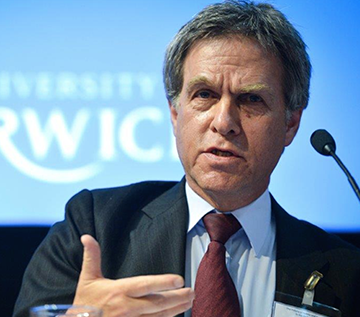Professor John Preston
University of Essex
Mass Population Response to Critical Infrastructure Collapse – A Comparative Approach
Nine leading academics were appointed as Global Uncertainties Leadership Fellows under PaCCS in 2013. They provided leadership for the Partnership undertaking high quality research and knowledge exchange projects across themes of radicalisation, religion and beliefs, trust, ethics, and national security.
At the time of his fellowship, John Preston was a Professor of Sociology at University of Essex. His research at the time focused on disaster education and public preparedness. John has been a frequent contributor to media and public debates on preparing for disasters and his work has featured on the BBC, Reuter’s news and in the broadsheet press. He is also author of the book ‘Grenfell Tower: Preparedness, Race and Disaster Capitalism’ (Palgrave, 2019).
John was previously principal investigator on an ESRC funded research project ‘Preparedness pedagogies’ (2009 – 2010) and principal investigator on an EPSRC and ESRC project ‘Game theory and adaptive networks for smart evacuations’ (2010 – 2013).
Project Summary
John’s Global Uncertainties Leadership Fellowship was entitled Mass Population Response to Critical Infrastructure Collapse – A Comparative Approach.
The ‘National Infrastructure’ is seldom out of the news. Although the infrastructure is not always easy to define it includes things such as utilities (water, energy, gas), transportation systems and communications. We often hear about real or perceived threats to the infrastructure and the government, businesses and the general public are encouraged to prepare for infrastructure failures.
This research sought to construct ‘timelines’ of infrastructure protection policy and mass population response to see exactly how and why policy changes in countries over time. A range of countries were selected to represent different political and social factors (US, UK, New Zealand, Japan and Germany).
The analysis of these timelines aimed to suggest why national infrastructure policy changes over time. Results were then be tested using case studies of actual disasters and expert groups of policy makers across countries. Ultimately, Professor Preston hoped that this research would help to understand national infrastructure protection changes over time, what drives such changes and the different ways in which countries can best prepare themselves for infrastructure threats.
In addition, through a series of ‘leadership activities’ the research sought to bring together researchers in different academic disciplines and people from the public, private and third sectors.
This project ended in December 2015.
Related Information
Get in touch










